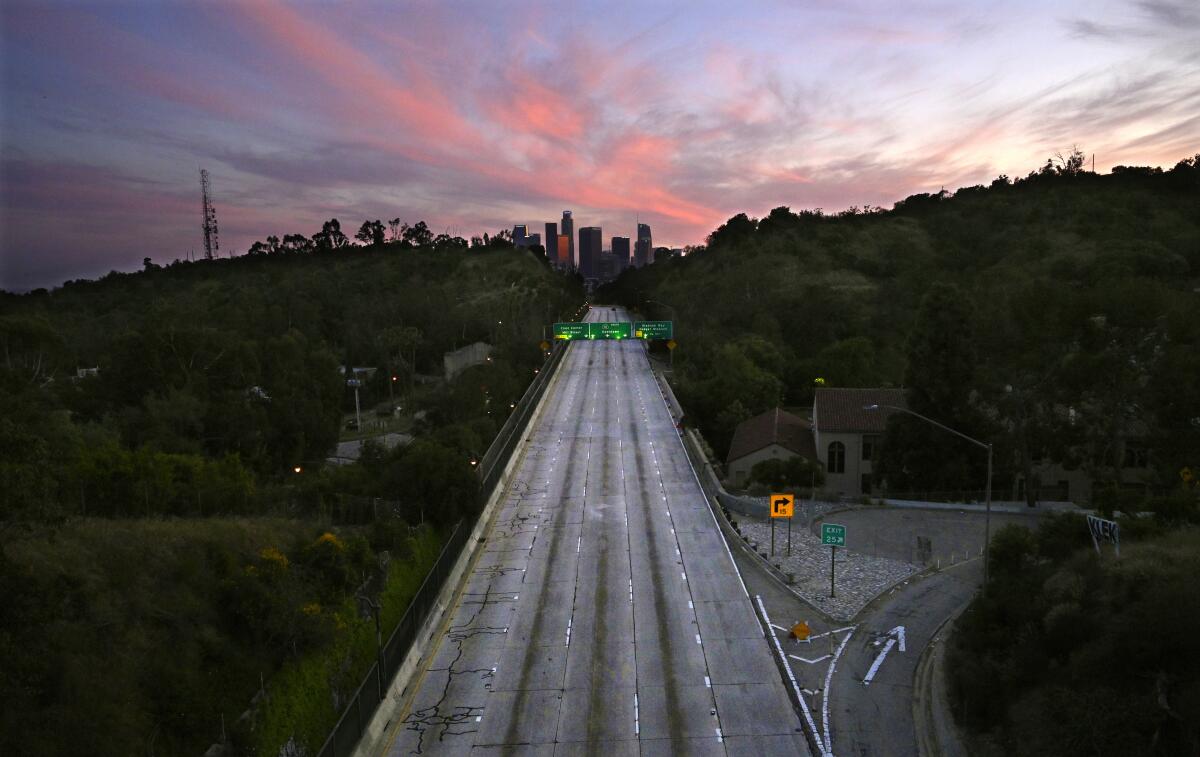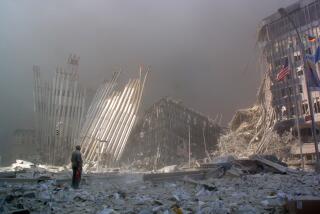A year later on the long coronavirus road to change

- Share via
On Saturday evening, my wife and I commemorated the first anniversary of the COVID-19 pandemic by inviting two friends to join us for a masked and distanced cocktail on the lawn. We are partly vaccinated, and with new cases on the decline in Los Angeles County — 609 on Sunday, with just 25 deaths — we’ve begun to feel for the first time in a long time something like a cautious optimism.
In the email invite to our friends, I joked that we’d be sitting shiva for the long dark year we had experienced — with a minyan reduced in size for social distancing. Not a great joke, perhaps, but also not untrue. I am a keeper of dates, of occasions. This is part of how I recognize my passage through the world. Birthdays, death days, anniversaries; by remembering I keep track of where I am.
Commemorations bestow — or seek to — a sense of shape, of order, to the chaos of events. Experience is neutral. It is what we cull from it, the narratives we create, that give it meaning. Since last week, personal encomiums have been popping up across my social media feeds, as friends and colleagues and acquaintances remember the last time they went out to eat or attended a movie or concert, the final “before” family visit or the last in-person class. We take these sorts of moments for granted, until they disappear.
That’s why the president’s speech on Thursday, one year to the day after the World Health Organization declared COVID-19 a pandemic, was so essential. He told us that if we remained diligent and focused, Independence Day could possibly mark the beginning of our independence from the disease. He reminded us that “we all know what we need to do to beat this virus — tell the truth, follow the science, work together.” Bromides, yes, but no less valuable for being so.
“I know it’s been hard,” he said.
He’s right, as every one of us knows. What we’re commemorating is not just our survival. It is “the horrendous loss of life, the horrendous loss of livelihood, and the symbolic losses as well,” as UC Irvine professor Roxane Cohen Silver told The Times last week.
How do we accommodate our anguish and our sorrow? How do we go on? We have no choice but to put one foot in front of the other. Yet it helps to stop and take a moment to note — personally and collectively — the experiences of the last year.
Commemorations are not end points, of course, but rather stops along the way. The future is unwritten, Joe Strummer said, and for proof, we need look no further than the European Union, where Italy has just instituted new lockdowns, and many countries are seeing a significant increase in cases amid a vaccine rollout that has been disrupted by delays.
On March 11, 1918, the first U.S. case in what would become the devastating 1918-19 influenza pandemic was reported at Fort Riley, Kan. By the time the outbreak ebbed, it had caused 675,000 deaths in the United States (out of a population of 105 million) and as many as 50 million deaths worldwide.
I discovered that piece of the 1918 influenza timeline on a website for a PBS documentary on the subject (other sources cite the date as March 4). It’s tempting to suggest that this coincidence of events indicates a certain symmetry or confluence, but I want to resist such an easy narrative.
A year ago, I started singing “Happy Birthday” to myself twice, each time I washed my hands, timing the 20 seconds needed to eliminate the coronavirus. On the birthday of the apocalypse (or of this particular apocalypse), I still do — four, six, eight, 10 times a day.
As we observe the anniversary of the pandemic, we also acknowledge its ongoing presence. There is no going back. In ways we recognize and ways we don’t yet, the virus has changed us all, and irrevocably. We memorialize the occasion, then, not to say that it is over, but to take stock of — and to honor — who we are now and what we have been living through.
David L. Ulin is a contributing writer to Opinion.
More to Read
A cure for the common opinion
Get thought-provoking perspectives with our weekly newsletter.
You may occasionally receive promotional content from the Los Angeles Times.









